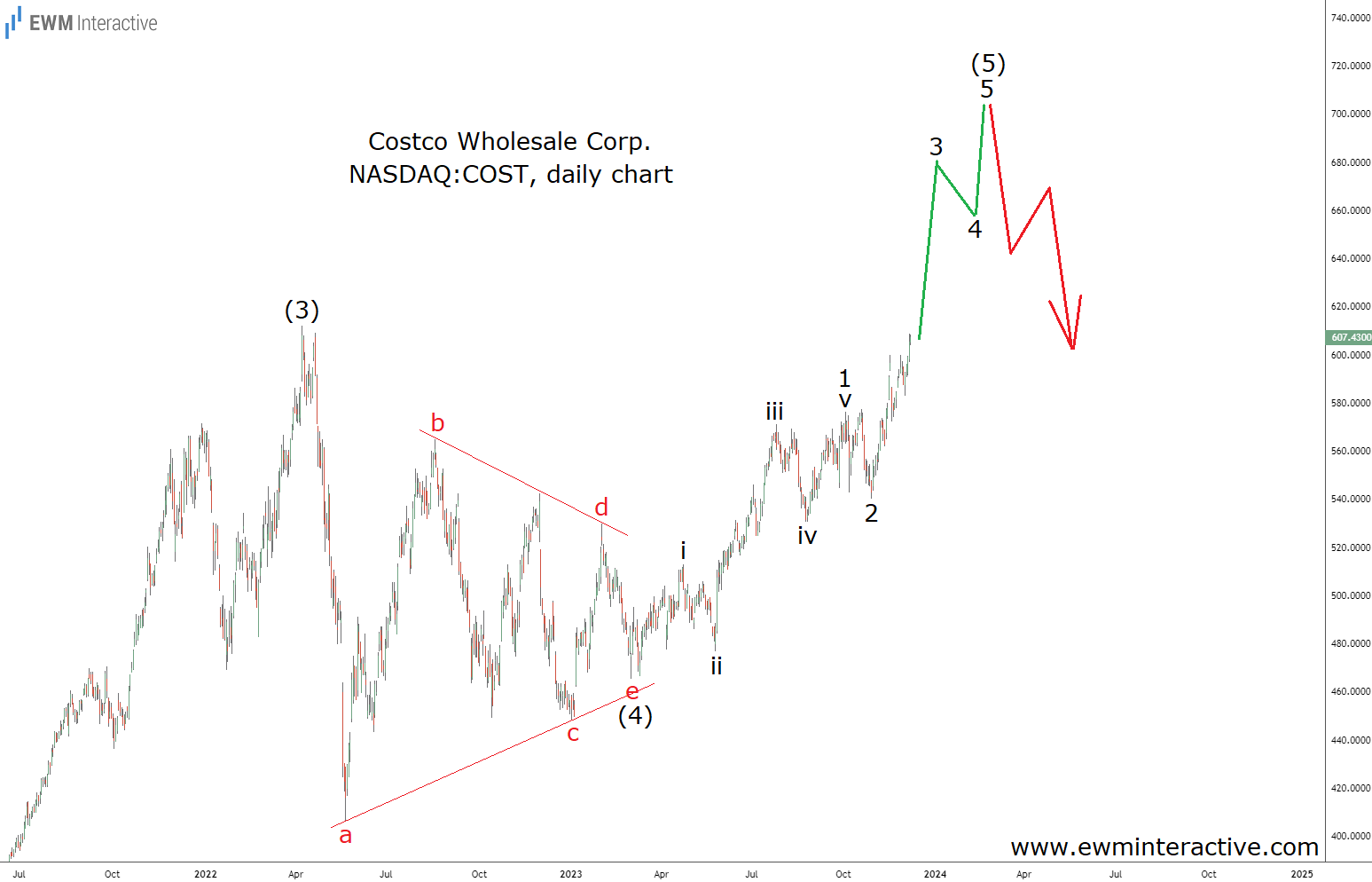Costco‘s Valuation Cannot Keep Stretching Indefinitely
2023.12.08 02:03
If it wasn’t for Walmart (NYSE:) and Amazon (NASDAQ:), Costco (NASDAQ:) would be the biggest retailer in the US and the world. The late Charlie Munger, Warren Buffett’s right-hand man, was not only a shareholder but once said he was “obsessed” with the company. With over 860 warehouse stores, a strong brand, more cash than debt, and steadily rising sales, earnings, and dividends, Costco really has it all.
The company went public in 1985 and has been in a continuous uptrend ever since. Currently above $607 a share, the stock is once again flirting with a new all-time high. That doesn’t mean it hasn’t had its fair share of bear markets, though. The bigger ones include a 72% crash in the early-1990s, a 57% selloff in 2000, a 49% plunge in 2008-9 and a 34% drop in 2022. The bottom line is that even a great business such as Costco is not immune to the vagaries of Mr. Market.
At its present valuation, the company trades at a forward P/E ratio of nearly 40. This is a demanding multiple no matter how you slice it. Even more so for a company, which is already quite big. The question investors are probably asking themselves right now is, does Costco ‘s high quality justify paying such a high price for the stock? We’ve been wondering the same thing, but a quick look at the chart below gave us a pause.

Costco stock went nowhere during the twelve months ending May, 2023. The share price had been locked in an ever-narrowing range around the $500 mark. In the process, the price drew a pattern we’ve seen countless times. It is called a triangle and is known to precede the final wave of the larger sequence. Here, the pattern is labeled a-b-c-d-e and fits in the position of wave (4) of the bigger uptrend.
From this it follows that the current recovery must be part of the final wave (5). Fifth waves usually exceed the end of the corresponding third wave, so it makes sense for Costco to rise to a new record and then some. It looks like we’re close to the middle of wave 3 of (5). The remainder of this impulse can be expected to lift the stock towards the $700 mark.
Instead of celebrating, however, we think investors should brace for a notable bearish reversal. According to the Elliott Wave principle, every impulse is followed by a correction, which erases most or all of the fifth wave. In other words, a decline back to the support of wave (4) near $450 would make sense once wave (5) is over. Assuming a peak near $700, that’ll be a ~35% decline.
Original Post








